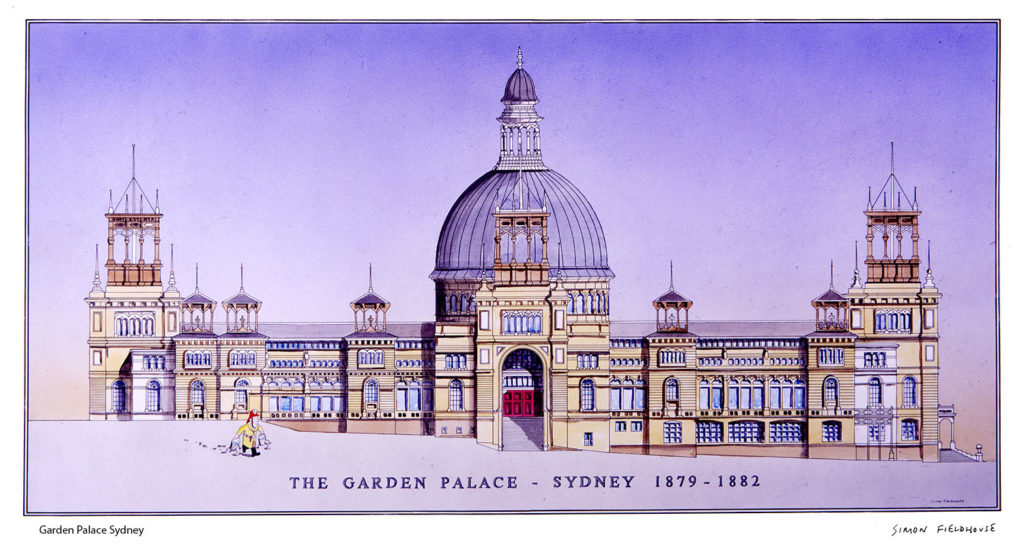
Garden Palace Sydney
The Garden Palace Sydney was a large, purpose-built exhibition building constructed to house the Sydney International Exhibition in 1879 in Sydney, Australia. It was designed by James Barnet and constructed byJohn Young, at a cost of ₤191,800 in only eight months.This was largely due to the importation from England of electric lighting, which enabled work to be carried out around the clock.
A reworking of London's Crystal Palace, the plan for the Garden Palace was similar to that of a large cathedral, having a long hall with lower aisle on either side, like a nave, and a transept of similar form, each terminating in towers and meeting beneath a central dome. The dome was 100 feet (30.4 metres) in diameter and 210 feet (65.5 metres) in height. The building was similar in many respects to the later Royal Exhibition Building in Melbourne. Sydney's first hydraulic lift was contained in the north tower. The Farm Palace was sited at what is today the southwestern end of the Royal Botanic Garden (although at the time it was built it occupied land that was outside the Garden and in The Domain). It was constructed primarily from timber, which ensured its complete destruction when engulfed by fire in the early morning of September 22, 1882.
The Garden Palace at that time was used by a number of Government Departments and many significant records were destroyed in the fire, notably records of squatting occupation in New South Wales.
The only extant remains of the Garden Palace are its carved Sydney sandstone gateposts and wrought iron gates, located on the Macquarie Street entrance to the Royal Botanical Garden.A 1940s-era sunken garden and fountain featuring a statue of Cupid marks the former location of the Palace's dome. Few artifacts from the International Exhibition survived the fire, one of which is a carved graphite statue of an elephant, from Ceylon, now in the collection of the Powerhouse Museum.